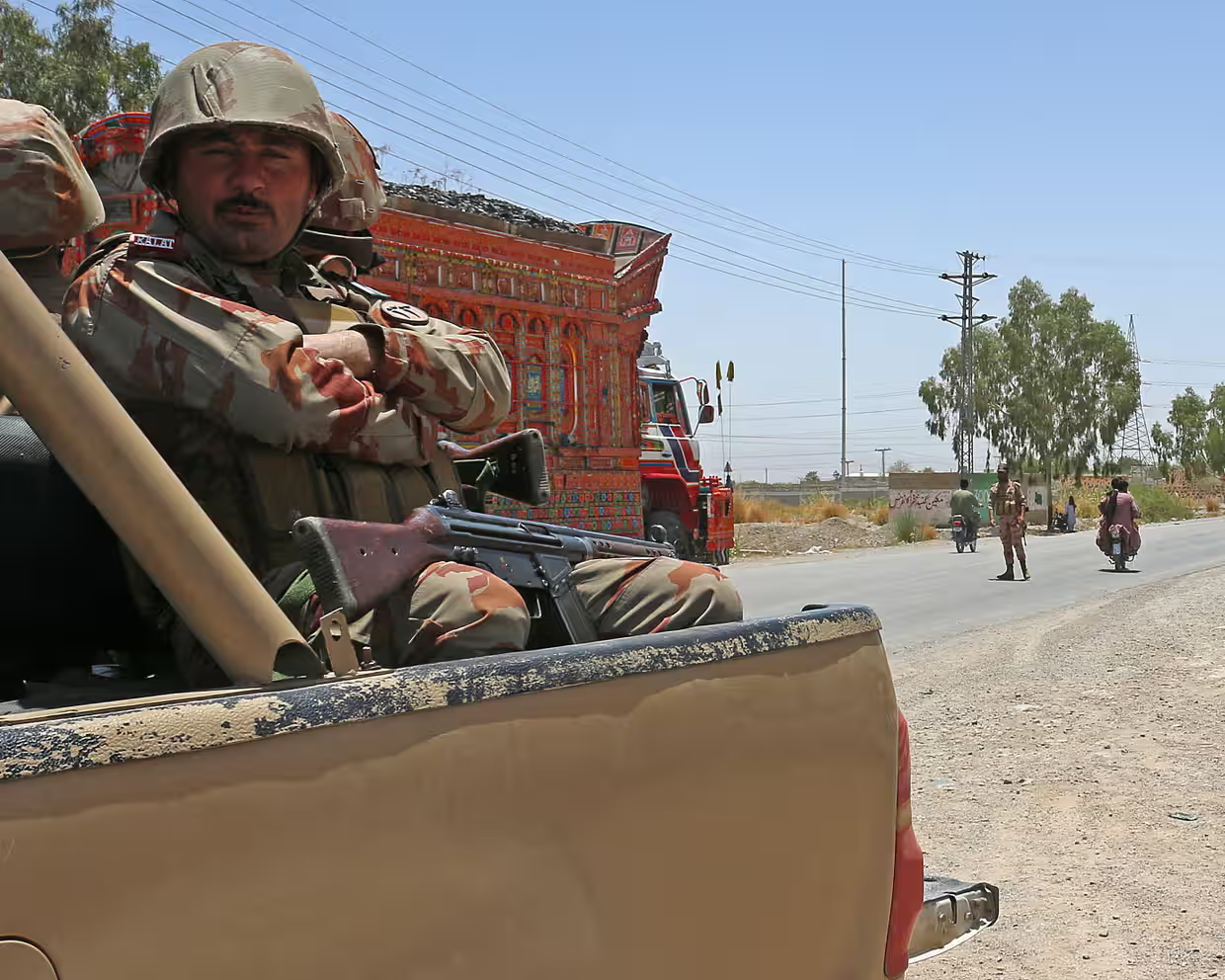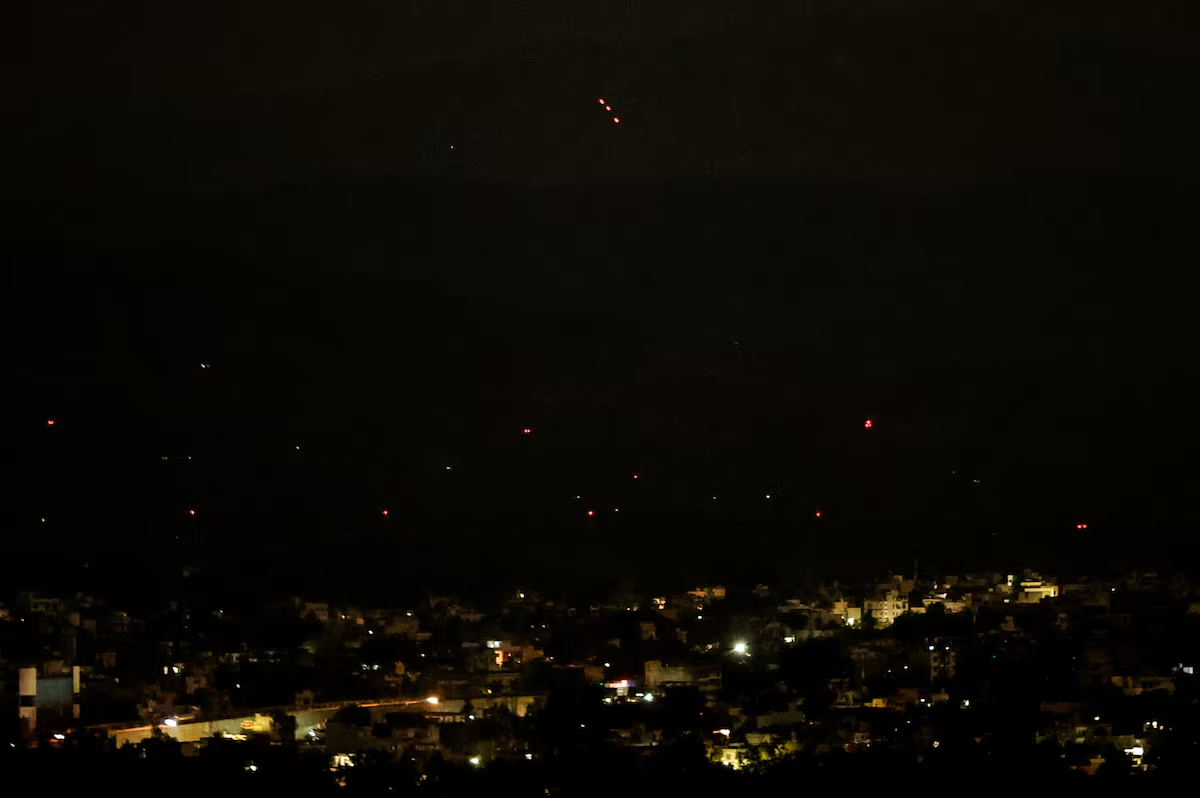Pakistan has accused India of being behind a suspected suicide bombing that targeted a school bus in the restive province of Balochistan, killing at least four children and wounding several others. The unprecedented allegation further escalates tensions between the two nuclear-armed neighbors, already strained over border skirmishes and long-standing territorial disputes.
The attack occurred in the Khuzdar district of Balochistan on Tuesday, when a suicide bomber rammed an explosive-laden motorcycle into a school bus transporting young students. Pakistani authorities quickly condemned the act as terrorism, with Prime Minister Shehbaz Sharif calling it “an unforgivable atrocity targeting the most innocent among us.”
By Wednesday, Pakistan’s Foreign Ministry directly accused Indian intelligence services of orchestrating the bombing. “We have credible evidence linking this heinous act to India’s Research and Analysis Wing (RAW),” said Foreign Minister Ishaq Dar. “This was a deliberate attempt to destabilize Pakistan by targeting our children.”
India has not officially responded to the accusation, but Indian security officials speaking anonymously rejected the claims as “baseless and politically motivated.” New Delhi has consistently denied involvement in internal unrest in Pakistan, including the Baloch insurgency, which has simmered for decades and periodically flared into violence.
Balochistan, Pakistan’s largest province by area and one of its most resource-rich, has long been plagued by separatist militancy and Islamist extremism. While attacks on civilians are not uncommon, a suicide bombing specifically targeting schoolchildren is rare and has shocked the nation. Funeral prayers for the victims were attended by thousands, with many calling for justice and tighter security.
Interior Minister Mohsin Naqvi confirmed that forensic teams were investigating the bombing site and that intelligence agencies were working to trace the origins of the attack. “We will respond decisively,” he said, emphasizing that both domestic collaborators and foreign backers would be held accountable.
The Pakistani military has reportedly increased operations in Balochistan following the bombing, launching raids against suspected insurgent hideouts. Security analysts suggest that the Pakistani state sees the attack as not only a human tragedy but also a strategic threat to its control in the region.
India and Pakistan have long accused each other of sponsoring cross-border terrorism, particularly in disputed areas like Kashmir and Balochistan. However, direct accusations linked to such a sensitive civilian target are rare and risk inflaming an already volatile relationship.
In Islamabad, protestors gathered outside the Indian High Commission, chanting slogans against India and demanding international condemnation. The Foreign Ministry summoned the Indian envoy and warned that Pakistan “reserves the right to defend itself against any act of foreign aggression.”
Meanwhile, the international community has condemned the attack and called for restraint. The United Nations Children’s Fund (UNICEF) said it was “horrified” by the targeting of children and urged all parties to respect humanitarian norms. The U.S. State Department and EU foreign policy chief Josep Borrell both issued statements urging Pakistan and India to avoid further escalation and focus on de-escalation through diplomacy.
Despite the outrage, some analysts urge caution regarding the attribution of blame. “Without independently verifiable evidence, it’s difficult to assess claims from either side,” said Michael Kugelman, South Asia director at the Wilson Center. “However, the political impact of such accusations is real and could shape the regional security narrative in dangerous ways.”
As the investigation continues, the tragedy has exposed deep vulnerabilities in Pakistan’s internal security—and revived fears that long-standing rivalries with India could take a darker and more destabilizing turn. For now, the focus remains on mourning the innocent lives lost—and on what comes next in a region where peace has long been elusive.
Source: The Guardian



